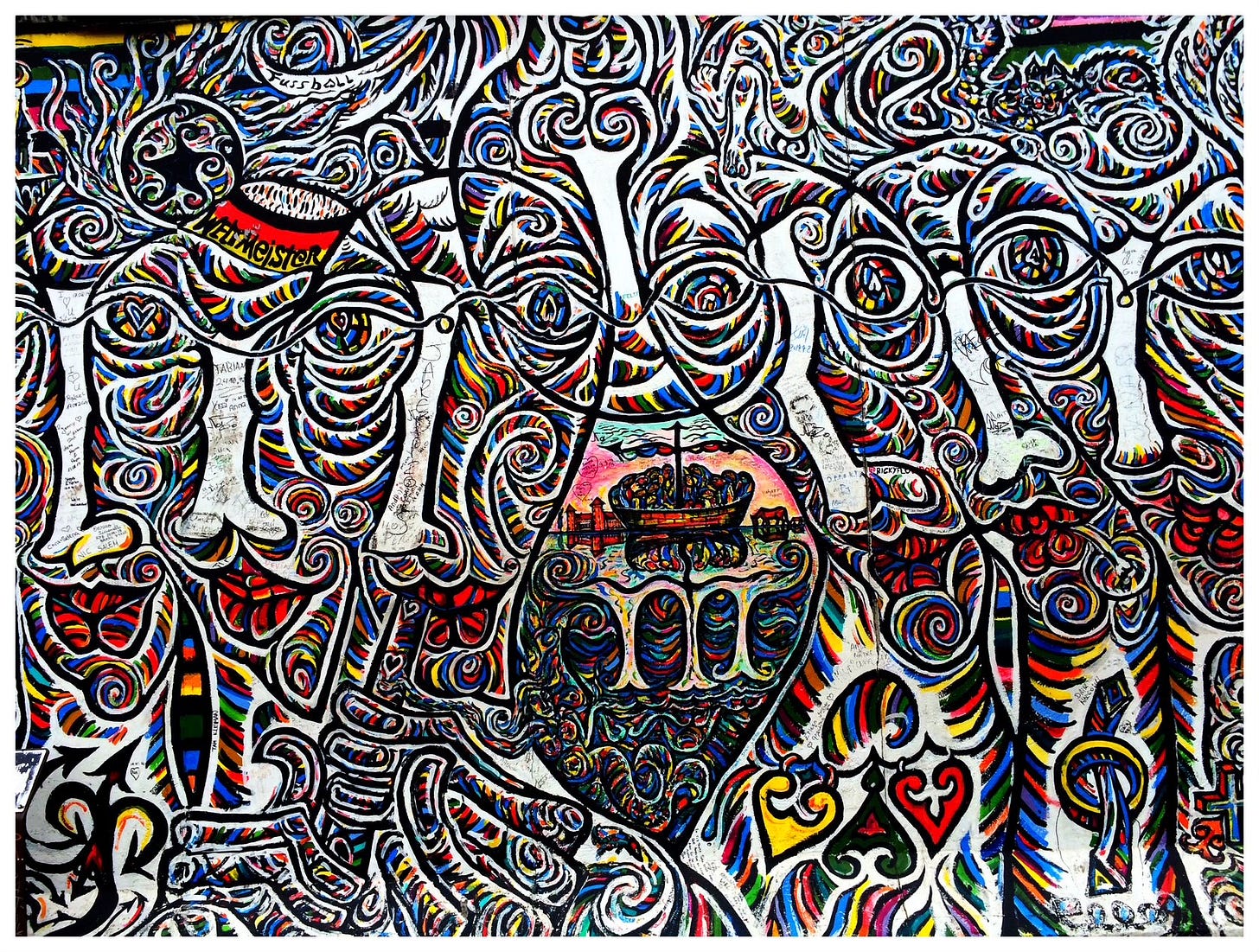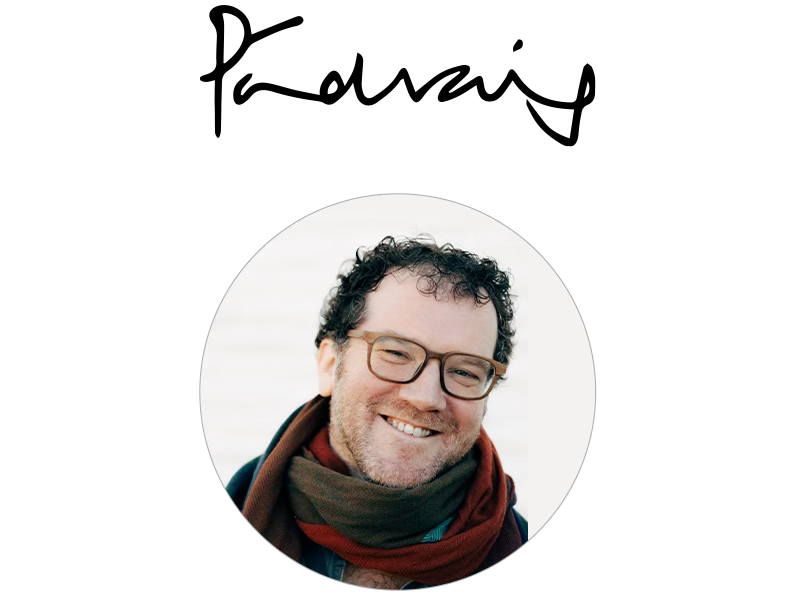A vessel
… the sea is so big and my boat is so small
Dear friends,
What pantoums last week. Hundreds of them. Thank you. I read through them all in spurts and starts over the week, including at 1 am on the morning of my birthday when I woke for a few hours. It was a lovely start to my final year of my 40s.
I’ve mentioned a prayer from the Celtic area of northern France before: “God help me. The sea is so big and my boat is so small.” What interests me in this prayer — or, to be accurate, one of the things that interests me in this prayer — is its understanding of the need for an adequate vessel. The boat is the vessel. The sea is big. Will the boat be enough? We hope so, for whomever it was that prayed this prayer.
A poetic form, too, is a vessel. The world is large. The dynamics of the world can be terrible. Anything can happen. And it is happening: war, hunger, distrust. Alongside harvests, babies, kindness. What to do?
A form of poetry — whether a sonnet, a pantoum, an aisling, a duplex — can offer a small vessel for your desire. It is not enough — the ocean is still huge, with terrible things threatening. But the container of form can help place your most important language in a structure adequate enough for the sounds your body needs to shape.
We made a Poetry Unbound episode about Nuala Ní Dhomhnaill’s Irish language poem “Ceist na Teangann (The Langauge Issue)” a few years ago. That poem uses the vessel of story: the story of a Pharaoh's daughter placing Moses in a small boat that she, too, hopes will be the enough:
Cuirim mo dhóchas ar snámh i mbáidín teangan … I place my hope on the water in this little boat of the language ...
aNuala Ní Dhomhnaill. Translated by Paul Muldoon from Pharaoh’s Daughter (Gallery Press & Wake Forest University Press)
Last week’s pantoum form provided a small boat — for memories about objects that hold memory. The pantoum’s structure and music provides a vessel for feeling, but the object itself (rings, stones, a cup, a plant) is also a container — for memory, for time and its passing, for yearning.
This week I am interested to know what forms you’ve turned to for containment. Is it a particular form of a language art? (A sestina, a hymn, the blues.) Is it myth? (Those immoral Greek gods.) I am especially interested in knowing the form you turn to, so rather than sharing a small essay on a particular song, I’d love to hear why it is you turn to jazz, or elegy or theatre. What does this vessel do for you?
Poetry in the World
A list of events: Online, in Canada (Hamilton, Ontario), in the US (Minneapolis, MN; Durham, NC), and the Scottish island of Iona
PS: I’ve got two books coming out in early 2025 — Kitchen Hymns and 44 Poems on Being with Each Other. You can pre-order them wherever you buy books.
October 30, Hamilton, Ontario, Canada
I’ll be giving a lecture on literature and health at the Faculty of Health Sciences at McMaster University as part of the Hooker Lecture 2024 series. Details here.
November 2, Minneapolis, Minnesota, US
I’ll be exploring concepts of politics, peace and poetry at an event with the wonderful people of the Loft Literary Center. Details here.
November 3, 10, 17, 24, December 1, Online
Fill your Sunday evenings with peculiarity, poetry, and ancient literature: I’m giving new online lectures on “Strange Stories of the Bible”. Register here.
November 18–19 Durham, North Carolina, US
I’m giving the William Preston Few lecture at Duke University. I’ll share details here as they emerge.
March 10–15 and March 18–23 2025, Isle of Iona, Scotland
I’m holding two Poetry Unbound retreats on the gorgeous Scottish island of Iona; each retreat is the same. Both retreats are booked up, but you can get on the waiting list by contacting the folks at the St. Columba here.




I turn to the language of my garden. What is it that the weeds are teaching me today? -- "Easy come, easy go." What about the bulbs? "There is a time for dormancy."
A poem I wrote:
Let Me Begin Again
after Major Jackson and Philip Levine
Let me begin again
as a patient bulb
nestled in the dark earth
of early spring.
Let me begin this time
already knowing
the schedule of my blooming,
settled snugly on my basal plate,
gathering strength
below the surface, self-contained
and content in the damp.
This time, let me know
that the darkness is essential
to my ability to detect light.
Let me know my season,
know all things have theirs,
that mine will arrive
as sure as the earth spins.
My business is silent and secret –
let me not act
with the rash urgency of the weed,
overeager,
tangled and choking
the plantings.
Let me emerge when
the pale, nudging light of spring
bids me
reach and reach
for the warmth until
my petals unfold.
I turn to the language of Needs. When I struggle or mourn, I am curious as to what is it that is calling to be heard? What needs are underlying my expression whether that be sadness or celebration? Just this week in a high tide of tiredness, I paused and listened to the waves of sadness and uncertainty. Listening to my body, to my breath, my needs were for rest, integrity and wellness. I pondered on these over my busy week: two difficult funerals and a 20th anniversary wedding celebration and renewal of vows. Mourning and celebration.
How then, I inquire, do these needs live in me, become alive through me? I cancelled what I had planned for today and leaned into a day of rest and prayer and meditation. I walked slowly along the beach. I took my 88 year old father for a walk; and then after dinner, I sat and watched the light fade and night descend. I feel nourished and rested, and ready for bed and to let go of everything as I sleep tonight.
I turn to the language of needs and listen for what is most alive and calling me home. This, time and time again, brings for me: clarity, connection and a sense of belonging. In writing down my needs in my diary is like a haiku, simple yet complex, seasonal and surprising.
Happy blessed birthday Padraig. When I read your messages and respond to your prompts it meets my needs for creativity, inspiration and a sense of belonging to this wonderful community you nourish and nurture. Thank you.